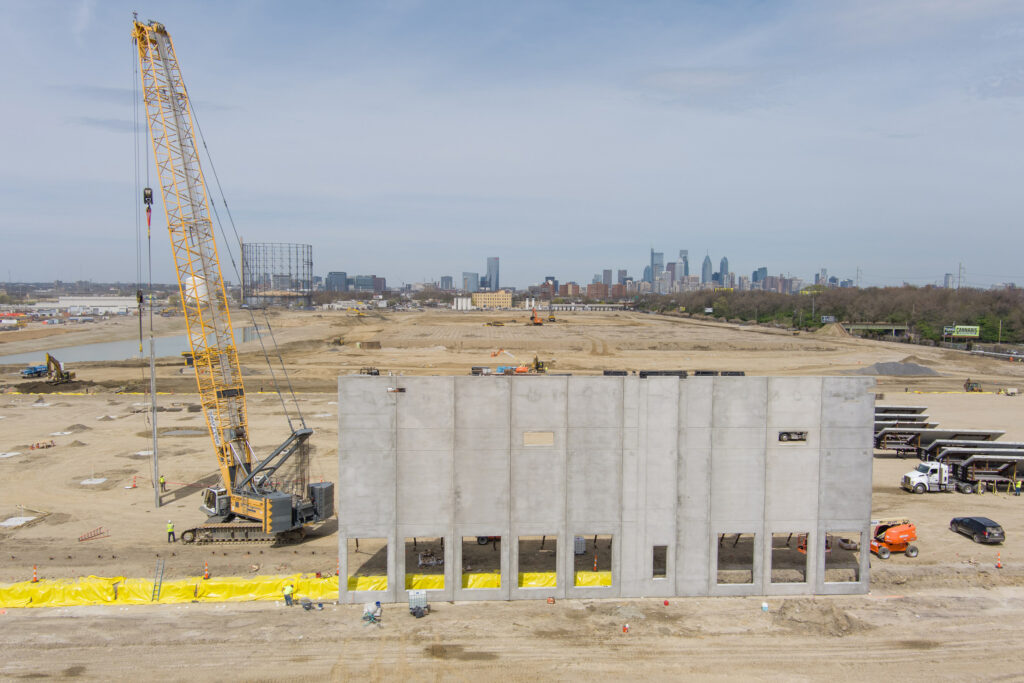PHILADELPHIA—HRP Group, the developer of the former largest oil refinery on the East Coast, has finalized an agreement with 16 community groups to reduce carbon emissions, raise the site above anticipated sea levels, and provide at least $8.2 million for local economic support.
The redeveloped site, now named the Bellwether District, will see continued remediation of petroleum-related contamination following the demolition of extensive refinery infrastructure dating back to the 1860s. HRP Group reached a community benefits commitment after 18 months of negotiations.
This site is set to become a logistics and life sciences hub with the first of at least 12 large warehouses already under construction. The refinery, a major air pollution source, closed in 2019 after an explosion and fire led to the bankruptcy of Philadelphia Energy Solutions.
Residents of surrounding neighborhoods, predominantly Black, are concerned about diesel fumes from trucks serving the new warehouses. While the end of oil refining is welcomed, there are worries over ongoing health risks from residual petroleum contamination.
Philly Thrive, a local group that supported HRP’s acquisition in 2020, criticized the agreement for inadequately addressing pollution issues. Philly Thrive’s campaign coordinator, Alexa Ross, expressed concerns about the impact of truck traffic on air quality.
HRP has committed $3.5 million for training and apprenticeship programs with the School District of Philadelphia, $2 million for other workforce initiatives, and $100,000 for tree planting in Southwest Philadelphia. HRP CEO Roberto Perez emphasized the commitment to environmental and economic sustainability in a statement.
HRP has removed millions of gallons of petroleum and hundreds of storage tanks and pipelines. For some areas, contamination is managed through capping soil and minimizing vapor intrusion rather than excavation.
The development site, adjacent to the tidal Schuylkill River, will be elevated above the 100-year flood level. However, the Clean Air Council warns that new construction may exacerbate flooding in nearby neighborhoods due to climate change.
The new agreement includes commitments to promote electric vehicles, adhere to LEED green-building standards, and install solar panels generating 60 megawatts of power.
The Philadelphia City Council has approved a 10-year extension of potential tax breaks for site tenants, contingent on school district approval. Council President Kenyatta Johnson supports these incentives for job creation.
Despite these efforts, Philly Thrive sees the overall plan as perpetuating environmental injustice for long-suffering residents, and vows to continue advocacy and oversight through its People’s Environmental Justice Enforcement Agency.
Original Story at insideclimatenews.org
